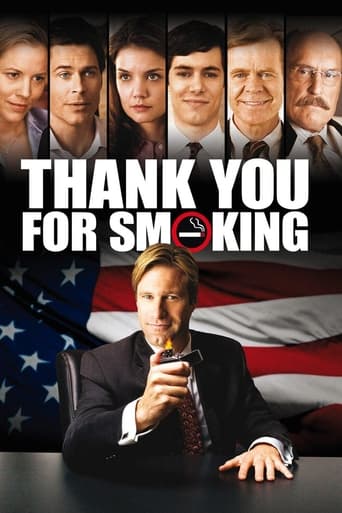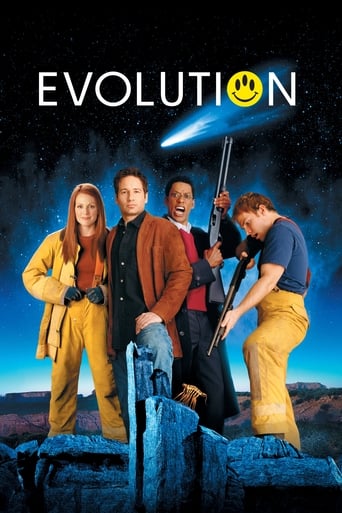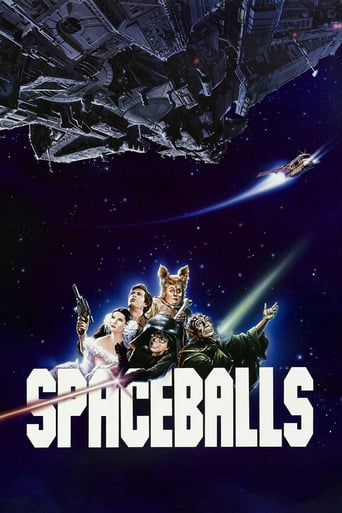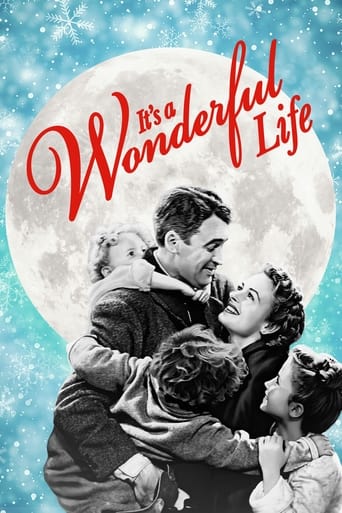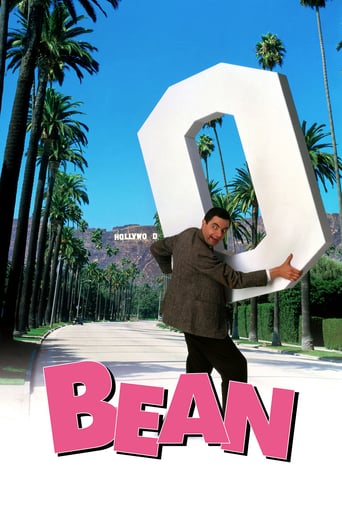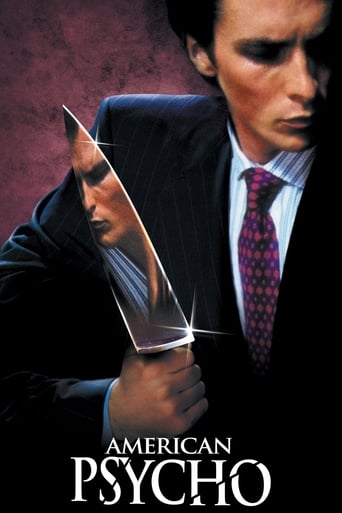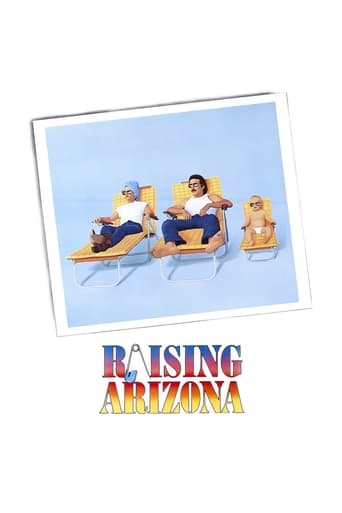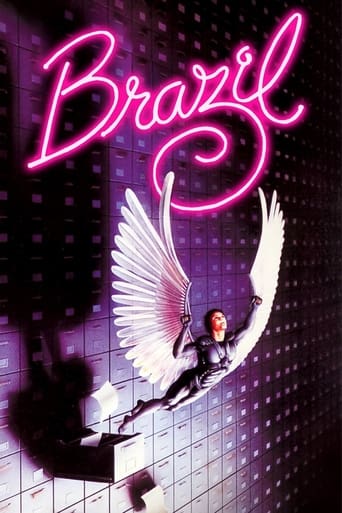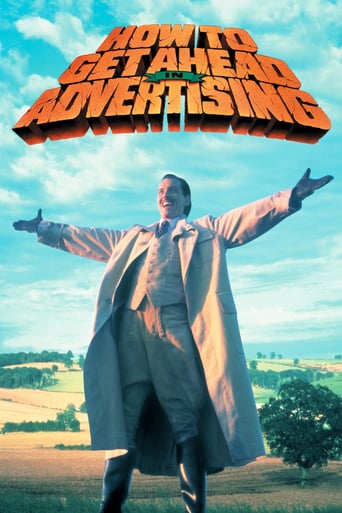
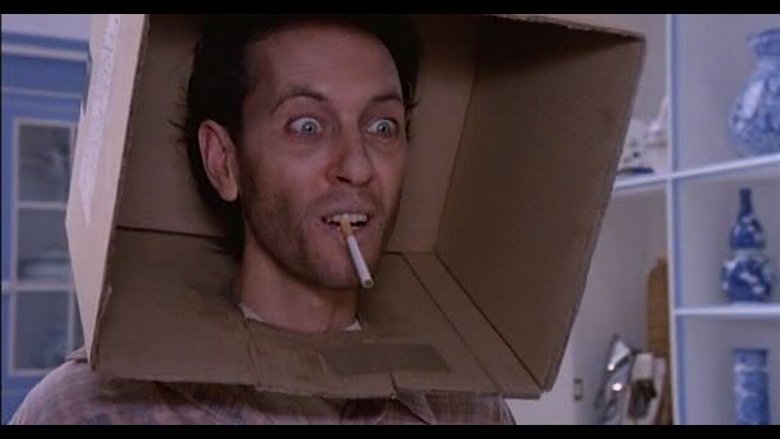
How to Get Ahead in Advertising (1989)
Pressure from his boss and a skin-cream client produces a talking boil on a British adman's neck.
Watch Trailer
Cast


Similar titles
Reviews
Excellent but underrated film
A brilliant film that helped define a genre
Blistering performances.
True to its essence, the characters remain on the same line and manage to entertain the viewer, each highlighting their own distinctive qualities or touches.
How to Get Ahead in AdvertisingThe best way to get ahead in advertising is to know the devil.Unfortunately, since the frazzled ad man in this comedy isn't acquitted with Lucifer, he will have to get a head literally.With a growing concern over the ethical nature of his profession, ad executive Bagley (Richard E. Grant) becomes mentally unhinged.While struggling to come up with a slogan for a zit cream, his mania is compounded by the appearance of a pustule on his shoulder that has begun to speak to him.In addition to the power of verbalization, over time, the abnormal abscess develops a mouth, eyes and a face, which is strikingly similar to his own, save for the moustache.A stimulating and surreal British satire, How To Get Ahead in Advertising is a paradigm of the psychological mindset needed to survive in marketing.Furthermore, having two heads means there's always someone to make-out with. (Green Light)
I imagine the handful of other people who have watched this film were largely, like myself, drawn to it by the desire for something - anything - that could possibly be as good as Withnail and I.This is BETTER.The premise is quite simple. Richard. E Grant plays a disenchanted, unenchanting advertiser, who is not only struggling with his social life, but also with his latest pitch - a new cream to cure boils. After spending a weekend frying his brain over it, he has an epiphany (or a breakdown) and decides that he has finished with advertisement. He shows this by removing every object 'corrupted,' by the industry. Chickens are thawed in the toilet, and televisions drowned in the bath.If any other writer worked with this plot, the film would be much less interesting. We would see the protagonist discovering what really matters. Love. Giving money to the poor. He would decide to go back to advertising - but this time, with integrity. The last scene would have him doing an advertisement for a charity, before stepping into the loving arms of his wife, Julia.Of course, it's not any other writer. It's Bruce Robinson. This means insanity. This means genius. This means...talking boils? Yes, that's right. A talking boil. This character - played by Bruce Robinson - hangs about on Richard. E Grant's neck, slowly destroying his life. No one else could lend so tragic an edge to this farcical comedy. Richard E Grant does another effortlessly beautiful turn as the supplanted husband, forced into submission by the malignant pustule controlling his life.I won't spoil the ending for you - but you must see this film. Like Withnail and I, it only has a couple of large characters. The setting is small and the plot strange. Not an awful lot happens, but you will feel every beautiful insult or idiom sinking into your brain, ready to be used on the next person who cheeses you off.
It is fascinating that after viewing How to Get Ahead in Advertising I began to think of similarities to Terry Gilliam's adaptation to Hunter S. Thompson's Fear and Loathing in Las Vegas. Both are very much comedies, yet in a more cerebral, dialogue driven way than just a vehicle for cheap laughs. These movies are funny in a way that makes the audience think and see the satire that is laid out before them. The world we live in is crazy and these tales subvert the insanity in order to comment on it. Originally I was expecting a British comedy of dry humor and good old-fashioned cheekiness and instead was surprised to find a dialogue heavy drama made funny by the fantastic performance from lead Richard E. Grant. Director Bruce Robinson has only directed three films in his career and, along with Withnail and I, has twice been given the Criterion Collection treatment. I will definitely be checking that film out post haste as I finally have reason to other than the strict curiosity struck by the drawings of Ralph Steadman, who coincidentally drew for Hunter S. Thompson, Fear and Loathing included. To make the small world seem even smaller, it appears Robinson has become attached to direct that film's sequel, The Rum Diary. While I love Gilliam, I am excited by the prospects of Robinson's like-mindedness combining with the genius that was Thompson's writing to weave a new masterpiece around Johnny Depp's return performance. I will however hope for an appearance from Grant as he is underused in cinema yet proves here he can handle a role that most definitely will be included in a Thompson story.Grant is an ad-exec at the top of his game. He is the go-to-guy for all sales pitches and at the moment is on the job to sell pimple cream. It ends up that he has no clue how to come up with an idea to end boils. The weight of the stress and anxiety soon becomes too much, and not only does a boil form on his shoulder, but it also begins to speak to him. The cutthroat panache he has used to build his career becomes fractured with a new sense of being and enlightenment to the fact that advertising, as an occupation, is a way of population control. Grant becomes aware that people like him have created a "big brother" type regulating that which the public buys and very well needs to survive. This newfound conscious soon finds itself berated and overtaken by the driven mentality displaced to the boil. All the ferocity he once held in check to be successful has become a split personality to be wholly unleashed on the world.The duality of character is left ambiguous throughout the film, as you never truly know whether the boil is alive or if both personalities come from an irrational mind. Grant plays the moments with perfect comic timing, oftentimes covering his mouth when the boil talks even though the voice is different than his own. The filmmakers do a great job of keeping the audience guessing, especially when early on we see him talking into a camera with the boil speaking while his mouth remains closed. We would then believe that the voice is real and separate from his mind until later on when his wife views the film. Grant's character in real life speaks the lines the boil would have on the tape, thus subverting whether the voice was real at all. Is he drowning out the boil or was the boil never speaking and only silence would have been heard had he not spoken in the present? All instances of philosophical inquiry into the mind control advertisers have over the general public are deftly handled and serious in tone. It is this give and take between the cerebral and the insane that makes the film work. Without Grant's total encompassing of his role, How to Get Ahead in Advertising would ultimately fail and become a pretentious mess of ill-conceived scope. His performance grounds the insight given into some realm of reality and helps allow the over-stylized approach work by making fun of its own pretentiousness.
This brilliant attack on commodification and the misuse of language to cajole consumerism is a must see. I don't like to give anything away so suffice to say that Grant is excellent as the near-schizophrenic hero (anti-hero) who's copy writer's block leads to his confronting the hegemony he operates within. The film mocks the abuse of semiotics in the media; one particularly hilarious scene has Grant battling his fellow-commuters over a newspaper story designed, per Grant's character, Bagley, to lead readers to directed conclusions. In the exchange about a heroin arrest reported in the paper, police allege that a bag containing heroin "may" have also contained marijuana. Bagley burst out with, "It may have contained a f***ing pork pie!" Hilarity ensues, but not devoid of a moral lesson...you may find the rendering of William Blake's "Jerusalem" at the film's conclusion particularly ironically amusing.






